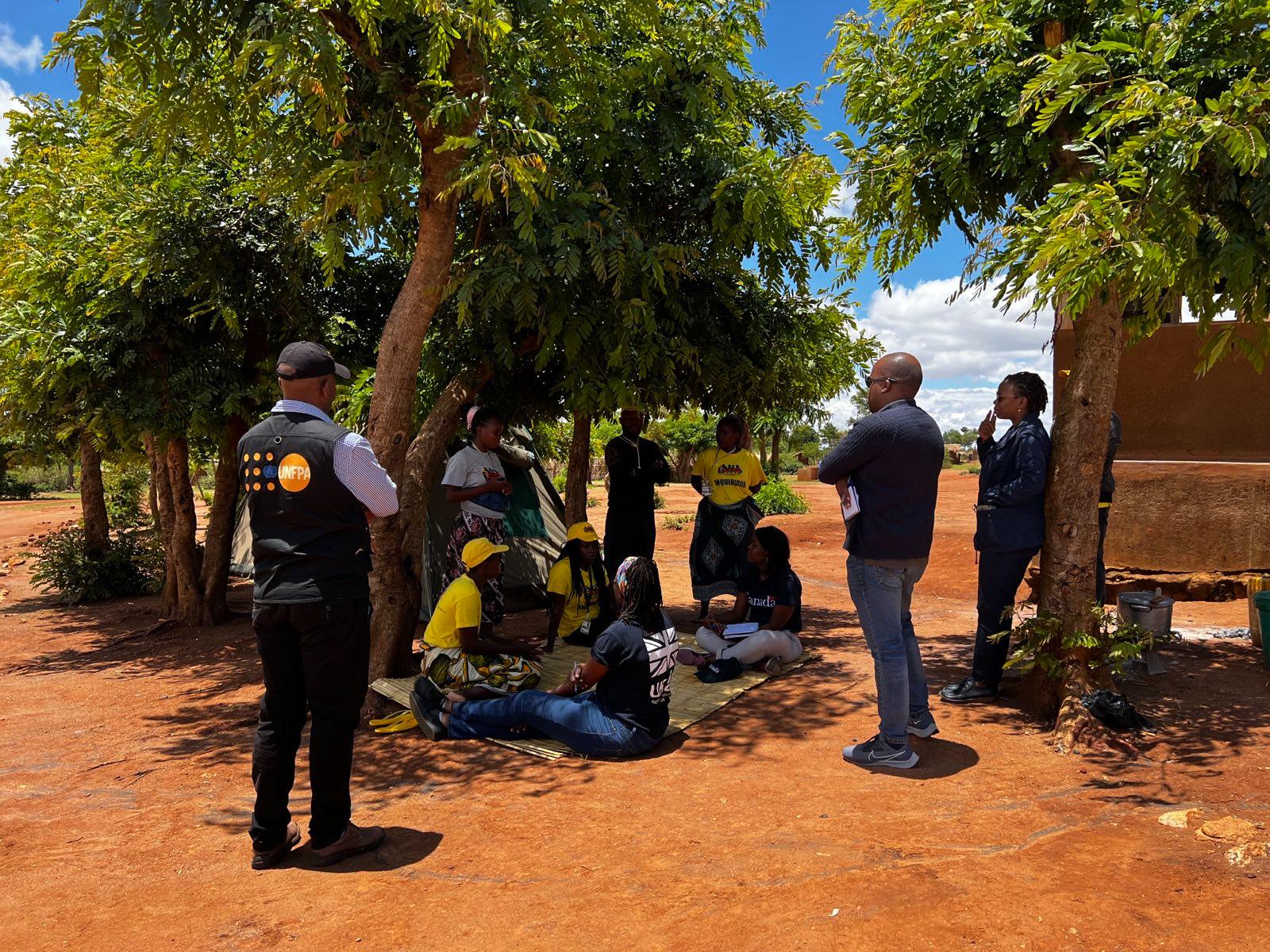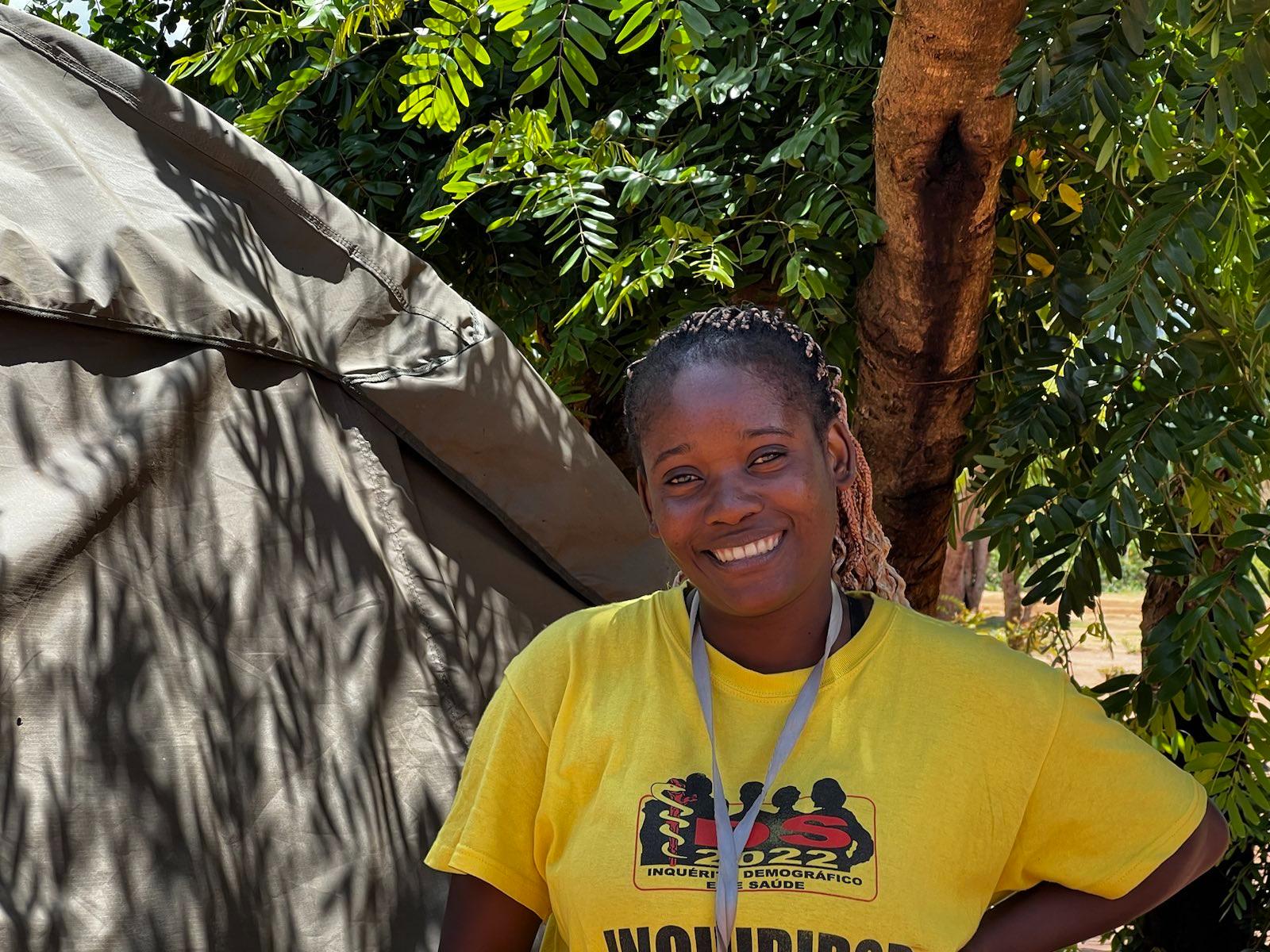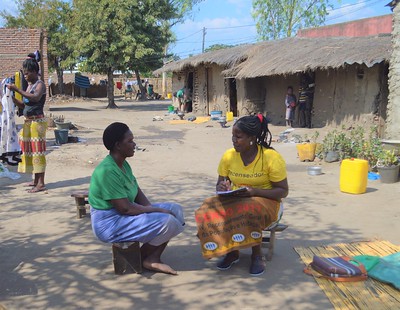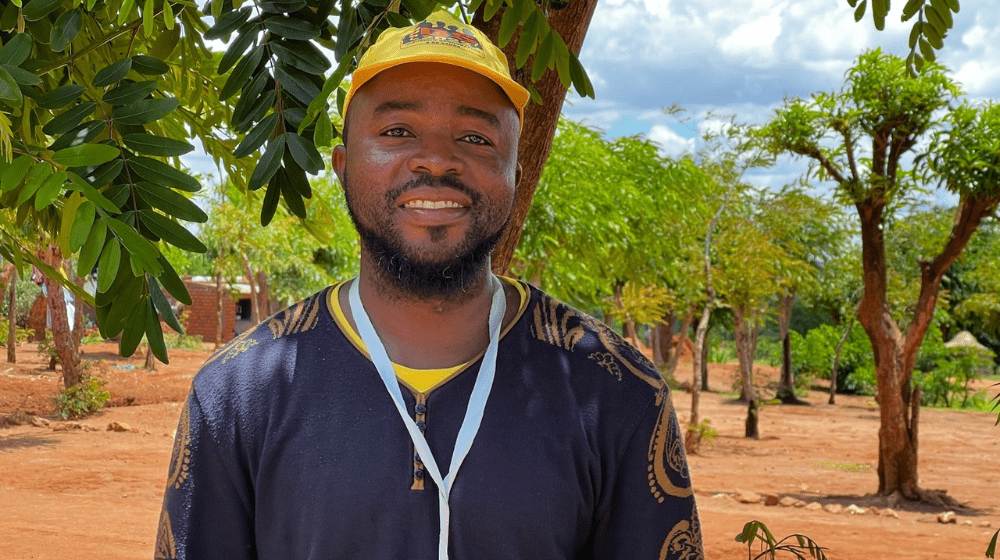"Through this work, we know the realities that exist in our country and communities. By collecting this data, we can help improve the lives of Mozambicans,” stated Nelson Jose Mufumba, an enumerator for the demographic and health (DHS) survey.
Nelson is one of the dozens of enumerators speaking to families and collecting data for the demographic and health survey (DHS), which looks at progress in areas of population, fertility, sexual and reproductive health, gender-based violence, and more. He used lessons learned from his experience collecting data for the 2017 IV Population and Housing Census, to hone in on his skill.
With a focus on using data for decision-making and evidence-based impact, the development and completion of the DHS is led by the National Institute of Statistics (INE), with technical and financial support from a variety of partners, including UNFPA, made possible with funds from the Governments of the United Kingdom (FCDO) and Canada.
“When we want to plan for the construction of social infrastructures, like health centers, we base our plans on the data we receive from INE,” shared Joana, a Tsangano District Administration Office member in Tete Province.
Collecting data is just one step of the equation, however. Ensuring it is accessible, widely known, and used for decision-making purposes, as reinforced by Joana, is the next crucial step.
A day in the life of an enumerator

Nelson and his colleague, Graça, formed part of an enumeration team in Tete province. Ensuring everyone counts and is counted, the enumerators traveled long distances to reach each and every household, with their journey frequently interrupted by obstacles such as flooded roads that were impossible to cross even by car.
As a first-time enumerator, Graça enjoys traveling to the most remote areas to meet with communities and collect data. Although some families are hesitant to share personal information, Graça confidently explains the importance of the survey for the province and the country as a whole.
“The community tells us about the need for mosquito nets, water wells, and other things; this information we collect from the survey will help the Government know where support is needed most,” Graça shares.


Partnerships to ensure everyone counts and is counted
As a long-time enumerator since 2006, Nelson adds that through the results of these studies, “we receive more partners in key areas of the country’s development, including, health and education.”
“The DHS is a great resource that will allow us to see how the Mozambican population is doing in relation to health. With the inclusion of new indicators related to topics such as mental health, obstetric fistula, and gender-based violence, the results are vital, as health is a big portion of the support provided to Mozambique by the Government of Canada,’ reinforced Diana Benzane of the Canadian High Commission, during a recent field visit to Tete province with UNFPA and the British High Commission.
Using data for evidence-based planning and policy
Reinforcing the need for evidence-based planning and policy, 2023 will see the launch of thematic studies based on data from the 2017 Census, with support from a multi-donor Trust Fund, incluiding the Governments of Canada, the United Kingdom, Sweden, Norway, and Italy, on issues ranging from urbanization to population dynamics.
With the country positioned to reap the benefits of the demographic dividend, data, and evidence helps to paint a clearer picture of where investments are needed to ensure no one is left behind.
“I encourage the general public to participate in these data collection processes. We have to participate in the improvement of our country. The more we participate, the more we develop!” concludes Nelson Mufuma enthusiastically.


